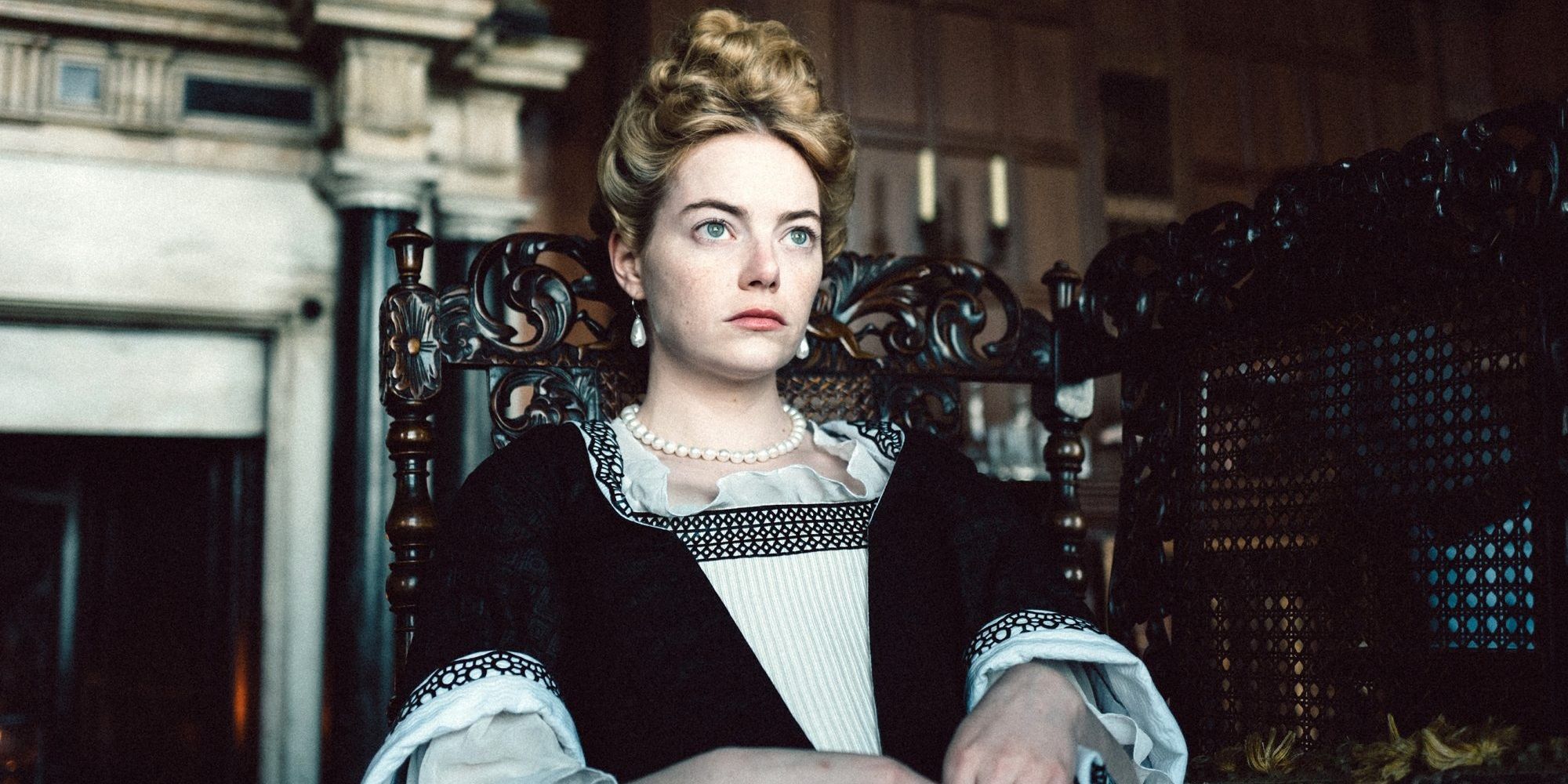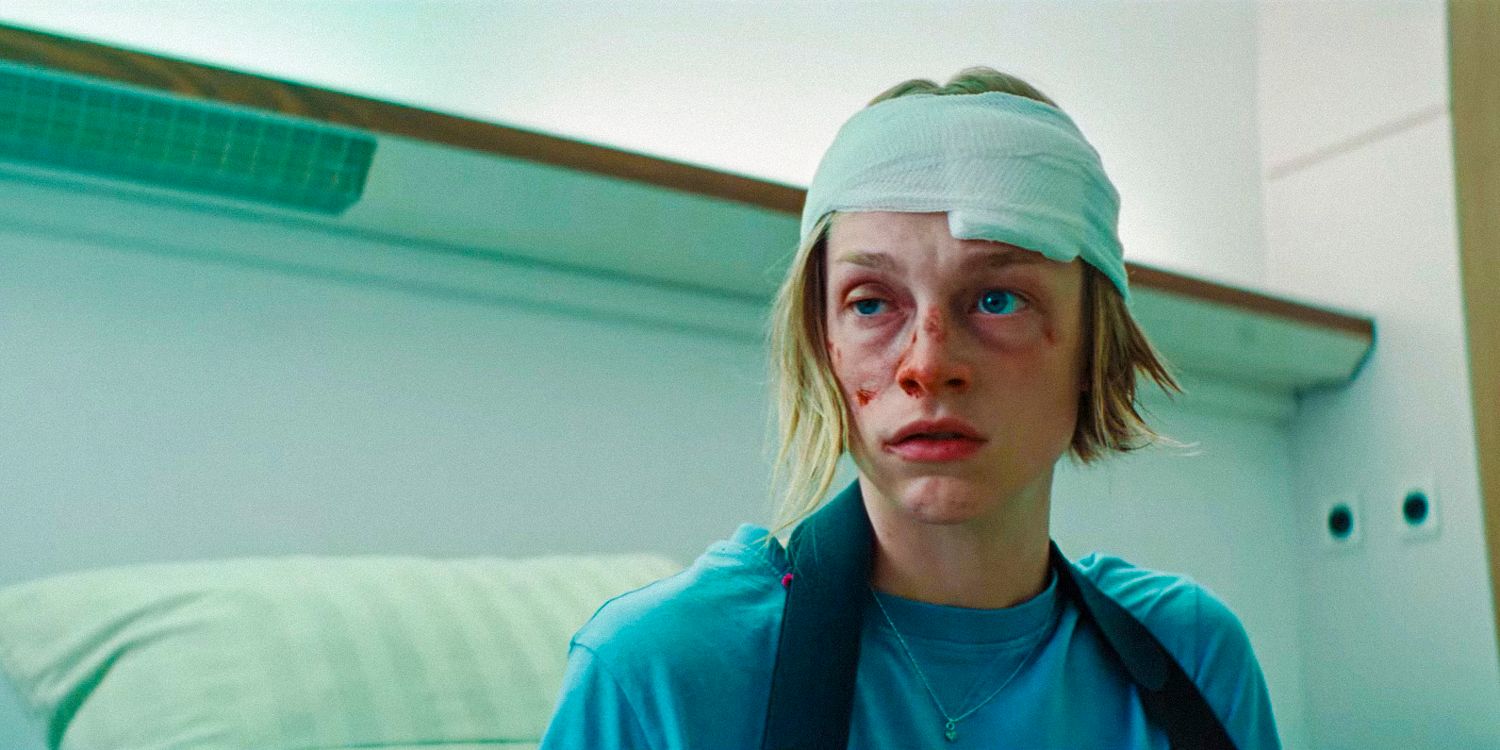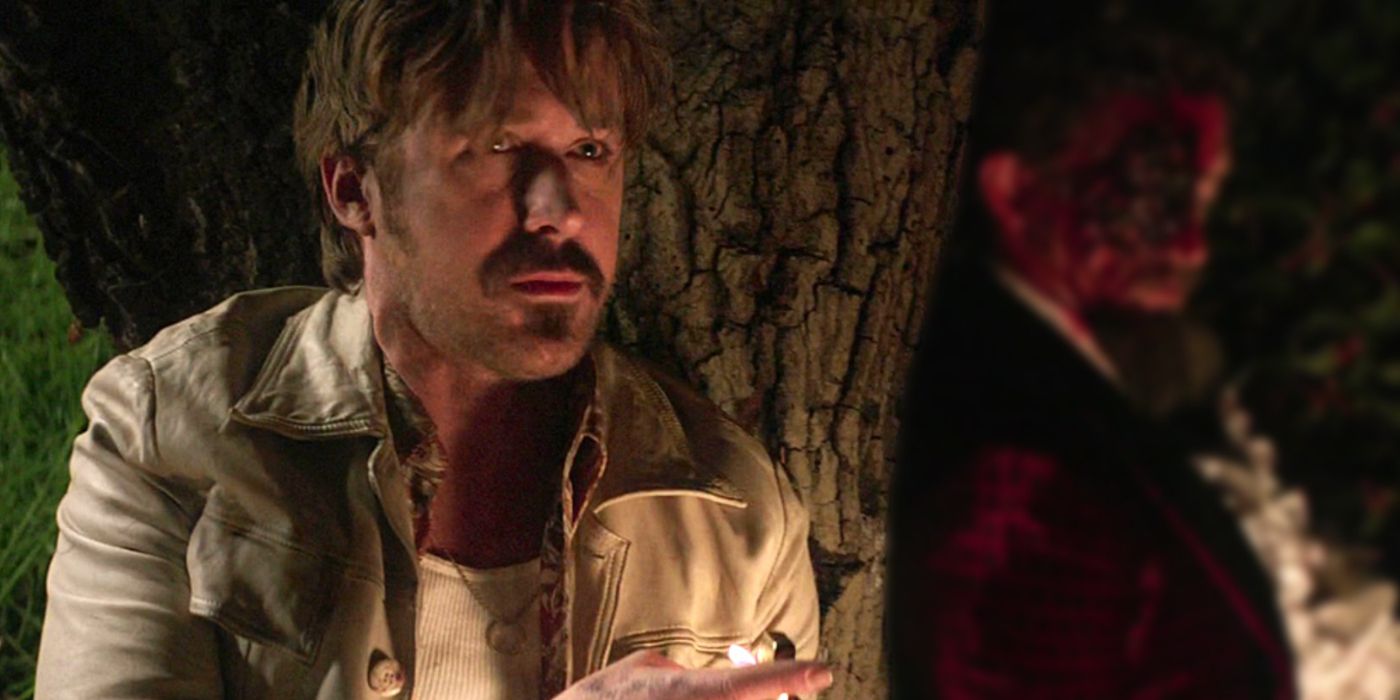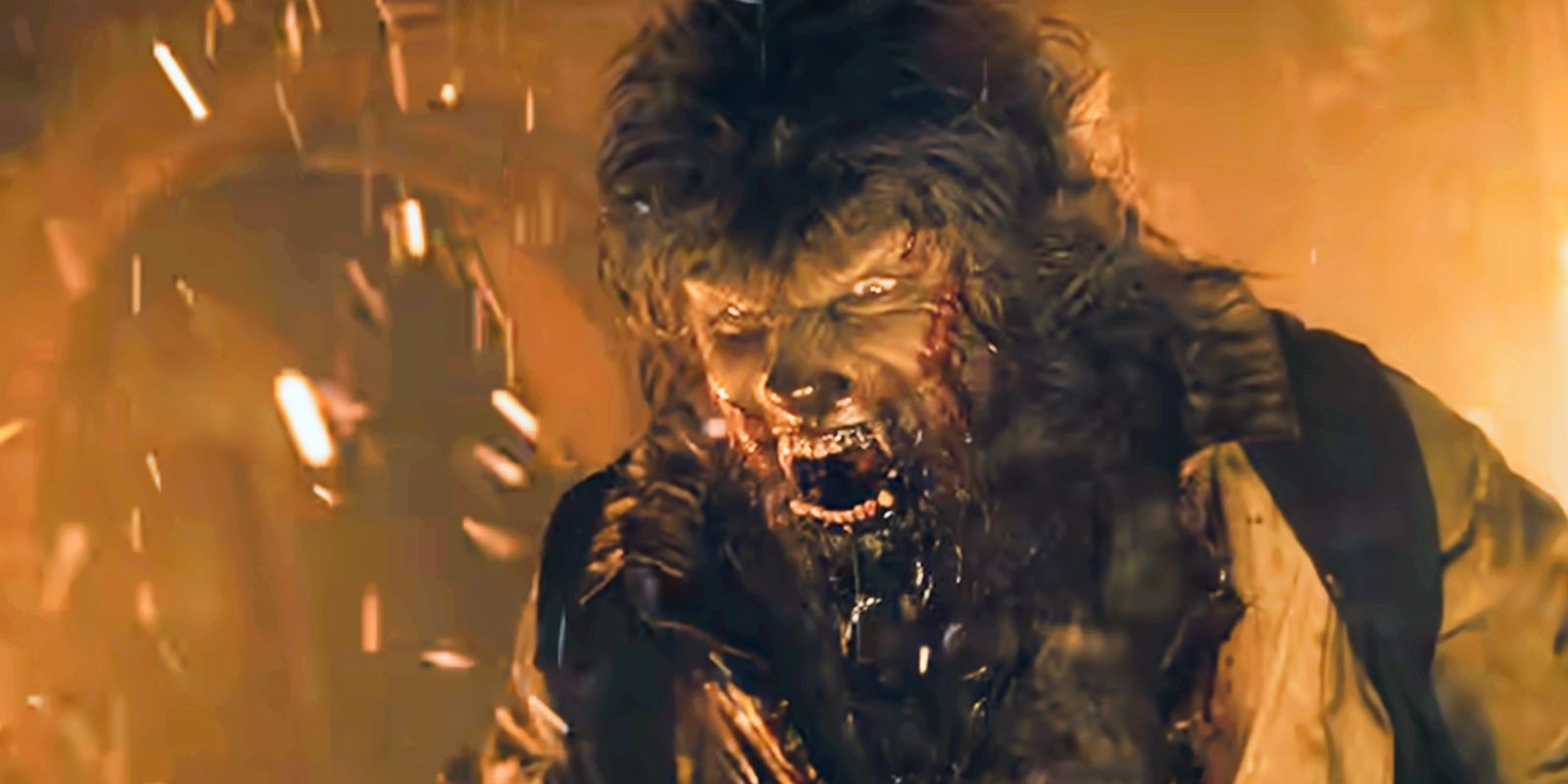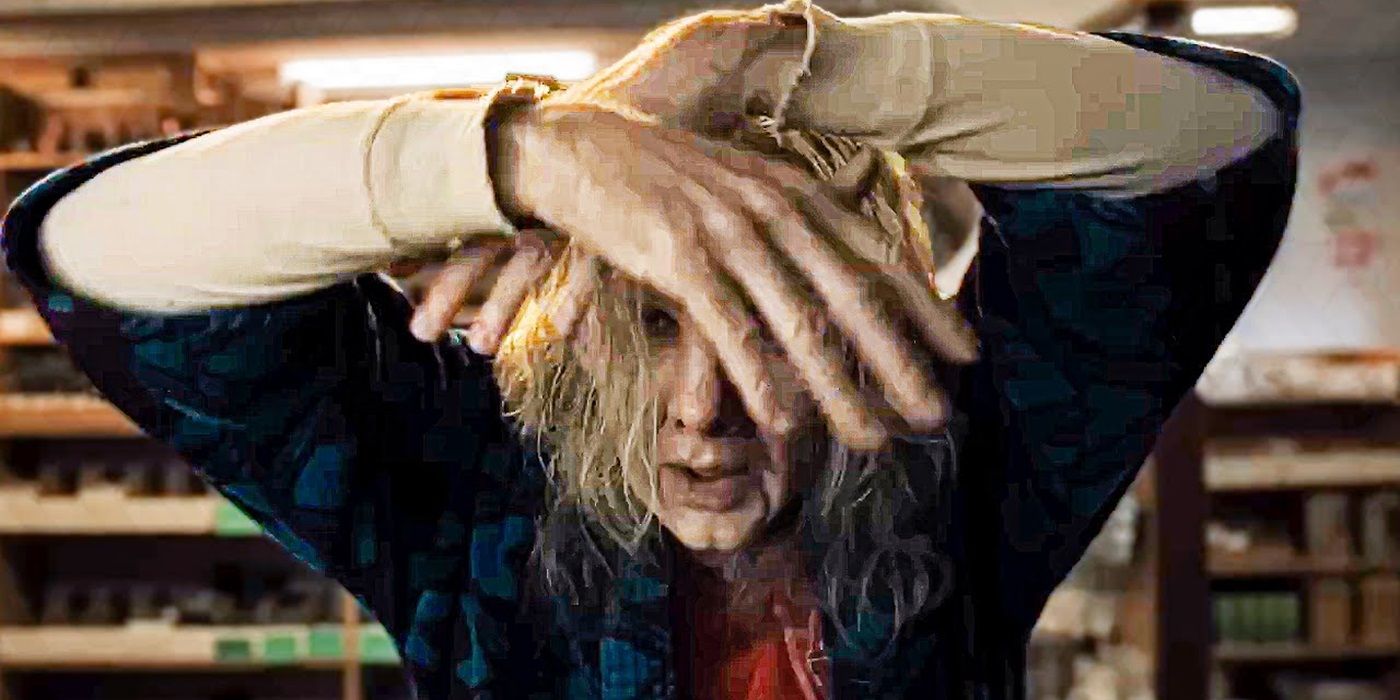Entertainment
Waypoint Entertainment Producers On Industry Rise, Favorite Productions, Nice Guys 2 & More
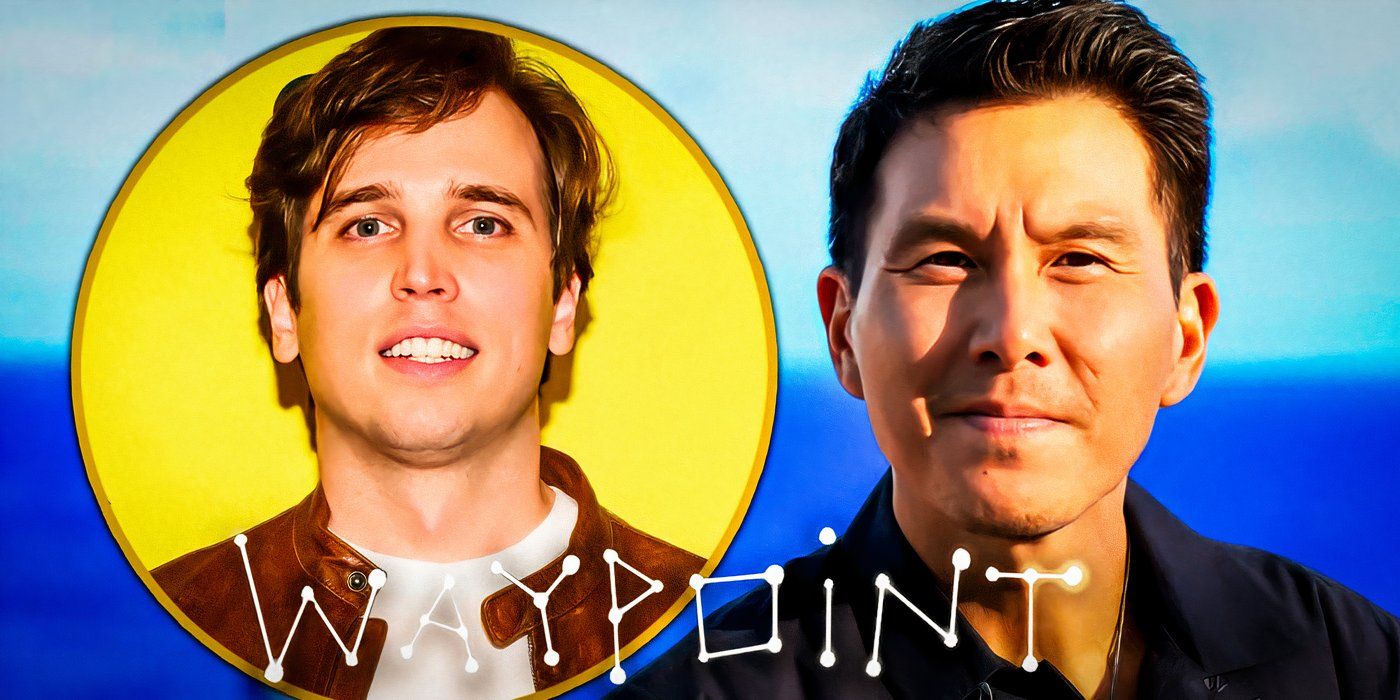
Summary
- Waypoint Entertainment takes a genre-agnostic approach to selecting projects, focusing on uniqueness and subversion.
- The studio emphasizes collaboration with filmmakers to bring their visions to life, prioritizing creativity and feasibility.
- Despite challenges in the industry, the team is excited about future projects, including the horror movie
Longlegs,
the horror-thriller
Cuckoo
and Blumhouse’s
Wolf Man
reboot.
With over a decade of work already under their belts, Ken Kao and Josh Rosenbaum are looking to keep their bright streak in Hollywood rolling at Waypoint Entertainment. The production company was first co-founded in 2010 by Kao, quickly getting the ball rolling with 2011’s Rampart, the crime drama led by Woody Harrelson and co-written by acclaimed crime novelist James Ellroy. With only a limited theatrical release, the movie was just a modest box office success, but garnered generally favorable reviews from critics and audiences alike.
After a few years off, Waypoint would come back in full force in 2015, partnering with arthouse directors Gus Van Sant for the Matthew McConaughey-led mystery drama The Sea of Trees and Terrence Malick for the experimental drama Knight of Cups. The following year would see them onboard two widely acclaimed movies, beginning with the Russell Crowe and Ryan Gosling-led The Nice Guys and followed by Martin Scorsese’s epic historical drama Silence. Despite the positive reviews, both movies found themselves pitted against some hefty box office competition, including Neighbors 2, The Angry Birds Movie and Hidden Figures.
Related
10 Best Movies Like The Nice Guys
The best movies like The Nice Guys don’t just contain hilarious comedy but compelling mysteries too.
In the years since, Waypoint has lent resources to a wide variety of genre efforts, including Scott Cooper’s Western drama Hostiles, the Jared Leto-led action-thriller The Outsider, the Netflix sci-fi thriller Tau, and Yorgos Lanthimos’ Oscar-winning historical black comedy The Favourite. The group also has a number of exciting projects on their docket for the future, including the Hunter Schafer-led Cuckoo, and Phil Lord & Christopher Miller’s Project Hail Mary adaptation, which will reteam them with Gosling.
As the studio forges ahead with its ambitious plans for the future, Screen Rant interviewed co-founder/CEO Ken Kao and Head Executive/Producer Josh Rosenbaum to discuss Waypoint Entertainment’s history, how they go about choosing which projects to support, and the current state of the movie industry. The duo also share their hopes for The Nice Guys 2 to get made, what to expect from Blumhouse’s Wolf Man reboot, and why audiences will be “scared out of [their] god—n mind” by Nicolas Cage in Longlegs.
Kao & Rosenbaum Take A “Genre-Agnostic” Approach To Picking Their Projects
In reflecting on their near-decade-long partnership, the duo recalled how Kao helped Rosenbaum escape his agent trainee position to build out Waypoint Entertainment, with both feeling thrilled by the experiences they’ve shared together thus far:
Ken Kao: Well, I co-founded this company in 2010-ish. I think Josh, I produced or was involved in, what, four or five movies, and then that’s when I’m going to hand off this baton to Josh to finish this.
Josh Rosenbaum: Yeah, you had done Rampart, you had made the two Terrence Malick films, and you were in post with the Gus van Sant and Matthew McConaughey film. And I was working at WME as an agent trainee and then drinking the Kool-Aid over there. And then, luckily, Ken shook me out of my reverie because he needed someone. He asked, “Hey, do you know anyone that would want to help me build out this company?” And I was like, “Yeah. Me.” And then that was in June 2015.
Ken Kao: Since then, I want to say we’ve had 12 films come out, and we’re almost at 10 years now. And yeah, it’s been nothing but a great experience even through all the crap that’s been thrown at this industry. I think we’ve kept it lean and mean, and just been able to try to circumnavigate all these issues that are getting thrown everyone’s way. And here we are still standing in 2024.
With the duo having tackled everything from historical comedies to mind-bending sci-fi thrillers to coming-of-age dramedies like Jonah Hill’s Mid90s, the duo finds themselves often presented with the question of how they choose which projects to come on board and which genre they look for. Rather than pick any one angle, the two ultimately feel that they are “genre-agnostic” in a sense, instead looking for anything “unique and potentially subversive” while also acknowledging the challenges they face to get such movies made:
Ken Kao: I think it’s really important that the film, or I like to say, usually these come in as a script, or in maybe a source material. Obviously, you know how these things come together. It has to feel, I think, unique and potentially subversive. That’s definitely something we look for. We really don’t want to do anything that feels like it’s following in the genre or whatever genre it is, or I think just another installment to that same genre. It’s hard to get films made, and it’s hard to get films to land. It takes a whole village to get these things done. So you never know how they’re going to turn out.
So I think you really got to feel there’s something there at the inception of it that I think gives them an opportunity to be unique and different. And people ask this all the time, like, “What genre are you into?” And I think we are pretty genre agnostic. I think if we’re in a genre, I think it’s to be additive or create something within any genre that pushes the limits or the parameters, the new boundaries of whatever genre we’re playing in.
Josh Rosenbaum: No, I think that sums it up really well. Because I get asked this all the time, and it’s really annoying to say, “Oh, we’re open to everything, all genres, all budgets.” Which is true, but I think if you’re going to try to distill it down a little bit more, predominantly it’s filmmaker driven material, like singular voices with real style, but that’s hopefully not getting in the way of the narrative form of the material. So yeah, that’s why we’ve worked with a lot of writer directors, I think, and a lot that we have coming up in the slate. I think that those tend to be the boldest, and most interesting, and unique stories. So I think that’s the only other element I could tangibly add to this.
1 Upcoming Movie Highlights The Importance Between A Collaborative Filmmaker & Producer
When it comes to picking a favorite experience thus far on a production, the duo is a little more careful, jokingly calling it a “loaded question“. Instead, they point to their experience working on Cuckoo, the horror-thriller led by Euphoria‘s Hunter Schafer and Abigail‘s Dan Stevens, as a prime example of what a good collaborative relationship looks like between a filmmaker and producer, recalling writer/director Tilman Singer’s “130-page version” of the movie’s script, which ultimately was pared down to the 102-minute movie without losing his “style“:
Josh Rosenbaum: Yeah, loaded. Why don’t we just say we most recently just had a wonderful experience with the latest writer director we worked with, which was Tilman Singer. And that was someone who’s an up-and-coming auteur. We saw his student film Lose, and we’re blown away. And it’s just so original. It’s esoteric arthouse. We’re like, “Okay, is that all Tilman wants to do for the rest of his days, make esoteric, bada–, weird 16 millimeter films, or does he want to go make films for a broader audience?”
And met him, and asked what he is working on next, and he shared the 130-page version of Cuckoo. That was the beginnings of what we have now. And it’s funny, when I talked to him, he’s like, “Oh, I made Lose to catch the attention of arthouse snobs and producers like yourself. And the next one, I want it to be for an even broader audience.”
It still has his style, but honestly, Tilman was the dream filmmaker for us because he has so much style, but he’s very collaborative, always willing to listen to what we needed to help sell it or whatever. But he always stood firm on his vision for the film. And I think that’s what Ken and I always see as our biggest task for any film project we’re going to work on is like, “How do we support the filmmaker’s vision?”
Of course, sometimes a filmmaker can get in their own way, and we can show them that. But I think we’re really there to make the vision that they sold us on, make that happen. So yeah, we already have Tilman’s next project that’s in development now. And we’re very excited for this film to come out in August so that everyone will understand just how awesome he is. And yeah, I don’t know, you haven’t had a chance to see it yet, have you at South by?
Ken Kao: I think that if I look back on all the filmmakers that we’ve worked with, and a lot of them have been the writers and directors, the aforementioned writers and directors we talked about earlier — I was reflecting, and Grant, you started the interview by saying that we’ve somehow been in this industry for 10-plus years, and I think I really couldn’t be here without the experiences that I’ve had with each and every one of these filmmakers. And everybody’s got their own style and personalities, and some are very pleasant, some are more difficult to work with.
But really, I think I’ve learned a lot about filmmaking from every single one of them. And I think I honestly really wouldn’t change any of the path that I’ve been on, because I think for us to be able to now operate and work the way we work, even the way we work with Tilman, is all informed by our previous experiences. And everybody’s got their own style, they really do. I think there’s probably nobody with the style of Terrence Malick. Terry’s idea of writing or the way he works, writing and directing, is very different than any other person we have worked with. I don’t know. And yeah, I think it has really been a special experience to work with all of them.
When it comes to finding the best way to bridge a filmmaker’s bold vision with a broad audience appeal, the duo agree that it ultimately comes down to ensuring that the first step to do so is just to get the project greenlit, particularly as both the independent movie marketplace and big studio world are “really tough right now“:
Josh Rosenbaum: Yeah, I was just going to say, I think that right now the biggest help that we try to be is how are we going to get this project greenlit? Because the independent marketplace and even the studio system, which we’re also setting up projects with major studios and streamers, it’s really tough right now. And packages that you would’ve thought were an instant green light now are being completely ignored and looked over with A++ actors and solid filmmakers. There’s no sure bets. And I think that that’s where we focus our attention is, “How can we help get this made?”
We started contributing cashflow financing for our projects and other people’s projects. We started this non-exclusive partnership with Neon as another. Frankly, it started out as a very selfish means of like, “How are we going to get our own projects greenlit and how can we invest in films safely?” Because I think equity film financing is just absurdly risky right now. And so we created a construction with Neon to do that. It’s not exclusive, so we can have that elsewhere. And I think it’s just like, “How can we as a company set up as many lanes to get a project made from a $150 million studio film to a $5 million film?
And I think that the other place that we try to influence is on the casting front to, I think, cast authentically and originally, because that’s how you’re going to stand out in the marketplace. And then you have to cater a little bit to the gods of foreign sales and value. But we try to find the ways that we can break in originality and not be casting the same stars that all other 1,000 projects taken out to marketplace seem to be choosing from. So yeah, I think that those are the two things that I think I get at least worked up about.
Ken Kao: Well, Grant, when I think about how our films, how we work with filmmakers, I think it’s a lot of collaboration. And I think collaboration today, to piggy off of Josh’s point, I think there’s a certain pragmatism, I think, that is required in order to get movies made. And I think that’s what Josh was trying to say a little while ago. And I think to find that holy grail intersection of art and commerce. And so the filmmakers that we’re really finding success with, I think are the ones that are understanding what it takes to get a movie made at the price point that it’s made.
And I think balancing that creativity with the functionality or, if you will, the logistics of filmmaking, the latter of which was a boring topic for filmmakers for a long time, and one that didn’t always need to be regarded. But I think people are really finding that now, after the strikes, after COVID, after the bubble burst on streaming, that’s a real thing that people have to pay attention to now for the most part. So I think being in lockstep with people that understand, that I think, is a big part of how we work these days.
Also, I think speaking about our partners, what I really love to do, and what I think is in the ethos of Waypoint, is finding ways to partner and really help creators be owners of things now. And I think the old traditional ways that studios and other producers have worked have been to treat filmmakers, or talent, or actors, work-for-hire gigs. And that never made any sense to me. Again, I’ve been in this business for actually 15 years now, which is, I think, by human life standards, a long time. But for movie business standards, not a long time, if you think about it. [Chuckles]
And when I came in, I had experience from other businesses or other walks of life. And for me, a lot of this was the way I heard things, or I saw things being done were very antiquated to me. So we’ve always been very collaborative, and wanted to create things, and be partners with other people. So it’s really easy for me, I think, to really have this approach with the people we work with. And I think that’s where we’re moving, to have creators be owners and not beholden to the rights in what they create, be beholden to others.
Renewed Interest In The Nice Guys Both Thrills & Breaks The Duo’s Hearts (But A Sequel Might Have Hope)
Despite having two A-list actors leading its cast and celebrated filmmaker Shane Black at the helm, The Nice Guys ultimately couldn’t overcome its box office competition to be deemed a success, grossing just shy of $63 million against its $50 million production budget. As Gosling’s recent comedic work in Barbie and The Fall Guy has turned more attention to the 2016 buddy comedy, Kao humorously notes that it’s “hurting my heart” to hear people finally clicking with the movie, as the Waypoint Entertainment team were “so proud” of the movie:
Ken Kao: Grant, you’re hurting my heart right now, man. This drum gets beat all the time. It’s like, “We love Nice Guys,”and people always talk about it. Especially now with The Fall Guy coming out, it’s almost like it renewed some interest in Ryan’s first, I guess you could call it a little bit of offbeat comedy. I don’t know how you would categorize that, but I feel like I’ve heard about Nice Guys now more than I have in a few years, because of The Fall Guy. But it hurts my heart, because we were so proud of The Nice Guys, and I think it was such a unique creation, and it was so fun to make. But speaking about this pragmatism, the economics of it didn’t frankly work out for everybody.
In looking to the future and Black’s previously teased plans for a Nice Guys sequel, and Gosling’s own recent calls for it to get made, Kao and Rosenbaum are a little cautious about these chances, feeling that the financial side of things may continue to hurt its chances. At the same time, however, Kao reveals that producer Joel Silver “brought up Nice Guys this past week“, sparking a conversation about just how the sequel could get made:
Ken Kao: I don’t know if you’ve heard this, but Shane originally had a threequel planned. Now, just to moderate expectations, I’m not saying there was a full set already completed, but conceptually, it was Nice Guys 2 was going to be in the ’90s, and then Nice Guys 3 could be in the next decade. So, I think Nice Guys had the texture of the time, it was a character in the movie. And I think each was intended to be like that, the atmosphere of the film was intended to be a character in the film. I really was hoping that it would work, and obviously, it didn’t quite do the numbers we all hoped for, theatrically.
Funny enough, Joel Silver had reached out to a mutual acquaintance of mine and brought up Nice Guys this past week, and it sparked a conversation about exactly, Grant, what you had just asked. Like, “What would it take, maybe, to get this thing to happen again?” And I think that we just have to make it on a budget. I think that continues to be the producers’ challenge and the filmmakers’ challenge now. I think the sign of the times is that we’ve just got to make films in a sustainable and responsible way.
I think we can’t keep having movies that don’t work at the box office, and it seems like the streamers aren’t going to just cut blank checks anymore. So I think we’ve got to figure out a way in this industry to make movies in ways that I think reward the people that make them. That also, I think, are made in a contained way where those that are releasing the films, they can continue to feel incentivized to doing so. And I think that’s the task, that’s the challenge for us, as producers, to pull that off.
Josh Rosenbaum: No, that’s right on. You’re seeing it countless times. I think that the response by some of your peers in the press of box office apocalypse scenarios is a lot of fearmongering. But it is like, “These budgets are now unrecoupable.” For some of these films, it’s like the profit line could be a billion dollars worldwide. It’s like, “That’s not a sustainable place to be.” But there’s double-edged swords and catch-22s everywhere. It’s more expensive than ever to make a film, but there’s also a pay gap that’s huge amongst all levels of the business. And how do you make the A+ versions of these films in a contained way so that you don’t have situations where you’re like, “Oh, well, that kind of movie doesn’t work because it couldn’t recoup.”
Because I remember the calls of — I saw it again online about people talking about The Fall Guy. It’s like, “Everyone’s always craving for an original film, and then when it happens, no one goes to see it.” And look, I think on The Nice Guys, there were a bunch of other things going. It was a really tough weekend to release it when we did, which I think even Ryan brought up in his last interview. But yeah, I think it just comes down to like, “If you’re going to do something that original, then at least on the first one, you got to be really conscious about the budget. No more endless checks, very sad.”
Kao Says To “Set Your Expectations Pretty High” For The Wolf Man Reboot
Amid the projects in the works the studio has is Blumhouse’s Wolf Man reboot, which was originally set to star Gosling on a story treatment he created, only for the various behind-the-scenes delays leading to him stepping away, but remaining onboard as an executive producer. As the movie forges ahead with The Invisible Man‘s Leigh Whannell back writing and directing after also previously departing, and Christopher Abbott in the lead role, Kao has nothing but excitement about what’s to come from the movie:
Ken Kao: Well, you’ve got Jason Blum and Leigh, who are, as you know, a power couple. They’ve got the track record. And I’ve read a few drafts and really cool treatments that Leigh’s put together. And I would say that you could probably expect something in the vein of what you’ve seen before. Really excited to see what Uni’s doing these days and exploiting this really time-honored monster IP. They’re not the only ones. I think a few other really prolific filmmakers I know personally have projects there set up with some of the other classic monsters. So I’m pretty excited to see everything that’s tapped from this vein, no pun intended. But yeah, I think you should set your expectations pretty high. It should be good.
When asked whether the Wolf Man reboot would somehow revive Universal’s scrapped Dark Universe plans, Kao admits that’s a question for “the powers that be” at the studio, though does indicate it will be another standalone project, comparing it to Todd Phillips’ Joker movies:
Ken Kao: Well, I think you’ve probably got to set an interview with the powers that be at Uni to get a clear answer on that one. [Chuckles] That’s above my pay grade, truly. But as an outsider, I would say that the Mummy’s Dark Universe, in my humble opinion, that felt like it was reactive to what was going on with all the superhero stuff, the MCU and DC universe. And we know there’s been a lot of talk about what happened with all that the last year or so. The approach, I guess you could call it maybe more like the Joker approach, I guess. In my opinion, especially if you’re going to do it for contained prices, like Blumhouse is really good at doing, makes a lot of more sense to me, I think. So that’s a good playbook.
Kao & Rosenbaum Are Thrilled About Waypoint & NEON’s Partnership (Particularly 1 2024 Horror Movie)
One of the biggest highlights for Kao and Rosenbaum is Waypoint’s recent financial partnership with Oscar-winning indie studio NEON, in which the two studios will deliver “a slate of bold, genre-spanning films for savvy theatrical audiences that often get overlooked by studios and streamers.” In addition to the various praise shared for Cuckoo, the duo are particularly excited about the upcoming horror movie Longlegs, not only hyping how terrifying it is but also praising NEON’s decision to minimize Nicolas Cage from the marketing to build up to his “most iconic horror” character:
Josh Rosenbaum: We’re just so excited, Waypoint’s so excited about this partnership with Neon. And it seems like you’re a fan of the genre space. And we’ve got a couple films, as well, Cuckoo, but another film that is already getting a lot of buzz, called Longlegs, that we’re partnering on too, this summer, and we were just so psyched about those. I think they’re not classic Uni monsters yet, but I think there will be some. I think they’ll make their mark. So we’re pretty excited about that. So you’ll have to let us know what you think about those when you see them.
Ken Kao: Yeah. I don’t really watch that many horror movies anymore, but we were like, “I watched this thing, and I was bothered. I was really bothered.” [Laughs]
Josh Rosenbaum: Yeah. I saw it at 10:00 AM with our team, because we were thinking about getting involved, just to help with the release a little bit. And it was just like, to be scared out of my god—n mind at 10 AM, I was like, “Oh my God, what did I sign up for?” It’s truly terrifying. And wait until you see the new trailer that Neon just cooked up. It’s so good. I’m very curious to see, because I think it’s films like The Witch and It Follows that really got me into horror as an elevated genre.
That got me really excited, because I loved The Shining and Alien growing up. But it had been a while for me to get really excited. And so I’m really intrigued to see. The arthouse horror fan base is going to flock to this. It is up there. But I think I’m very curious to see what’s going to happen with the broader horror audience, when it’s backing these films that are making $50 million-plus in the box office, because it stands alone. I think it’s been very interesting that Neon has not done any marketing about Nicolas Cage, because he’s iconic in this film.
But Oz’s film stands alone already. It is so good, it could have been anyone in that role. It could have been a complete no one, and it would’ve been just as good, but the fact that it’s Nic Cage, once you see it — I love that they’re hiding it, because they could almost just not touch that until after the film is out and just let people go see —well, it’s hard to say the most iconic Nicolas Cage character, but it’s certainly the most iconic horror Cage. I don’t know.
About Waypoint Entertainment
Co-founded in 2010 by industry veteran Ken Kao, Waypoint Entertainment is a full-service production company that provides creative and financial services to its projects. Guided by a collaborative and passionate team, the company serves as a project incubator, empowering talent and filmmakers through all stages of development and production.
Among Waypoint’s notable film credits are Yorgos Lanthimos’ Oscar and BAFTA-winning The Favourite starring Emma Stone, Olivia Colman and Rachel Weisz for Searchlight Pictures; Shane Black’s detective thriller The Nice Guys featuring Ryan Gosling and Russell Crowe with Warner Bros.; Destin Daniel Cretton’s The Glass Castle with Woody Harrelson and Brie Larson for Lionsgate; Scott Cooper’s Hostiles starring Christian Bale and Rosamund Pike; Martin Scorsese’s Silence featuring Liam Neeson, Andrew Garfield, and Adam Driver; Terrence Malick’s Song to Song starring Ryan Gosling, Rooney Mara, Michael Fassbender, and Natalie Portman; and Malick’s Knight of Cups with Christian Bale, Cate Blanchett, and Natalie Portman.
Most recently, Waypoint announced a strategic financial partnership with NEON, the studio behind Oscar-winners Anatomy of a Fall and Parasite. Together they will deliver a slate of bold genre-spanning films for savvy theatrical audiences that often get overlooked by studios and streamers.
Waypoint’s latest feature Cuckoo, written and directed by Tilman Singer, stars Hunter Schafer, Dan Stevens, and Jessica Henwick, and recently received rave reviews following its premieres at the 2024 Berlin International Film Festival and SXSW. NEON is set to release the film later this year.
-
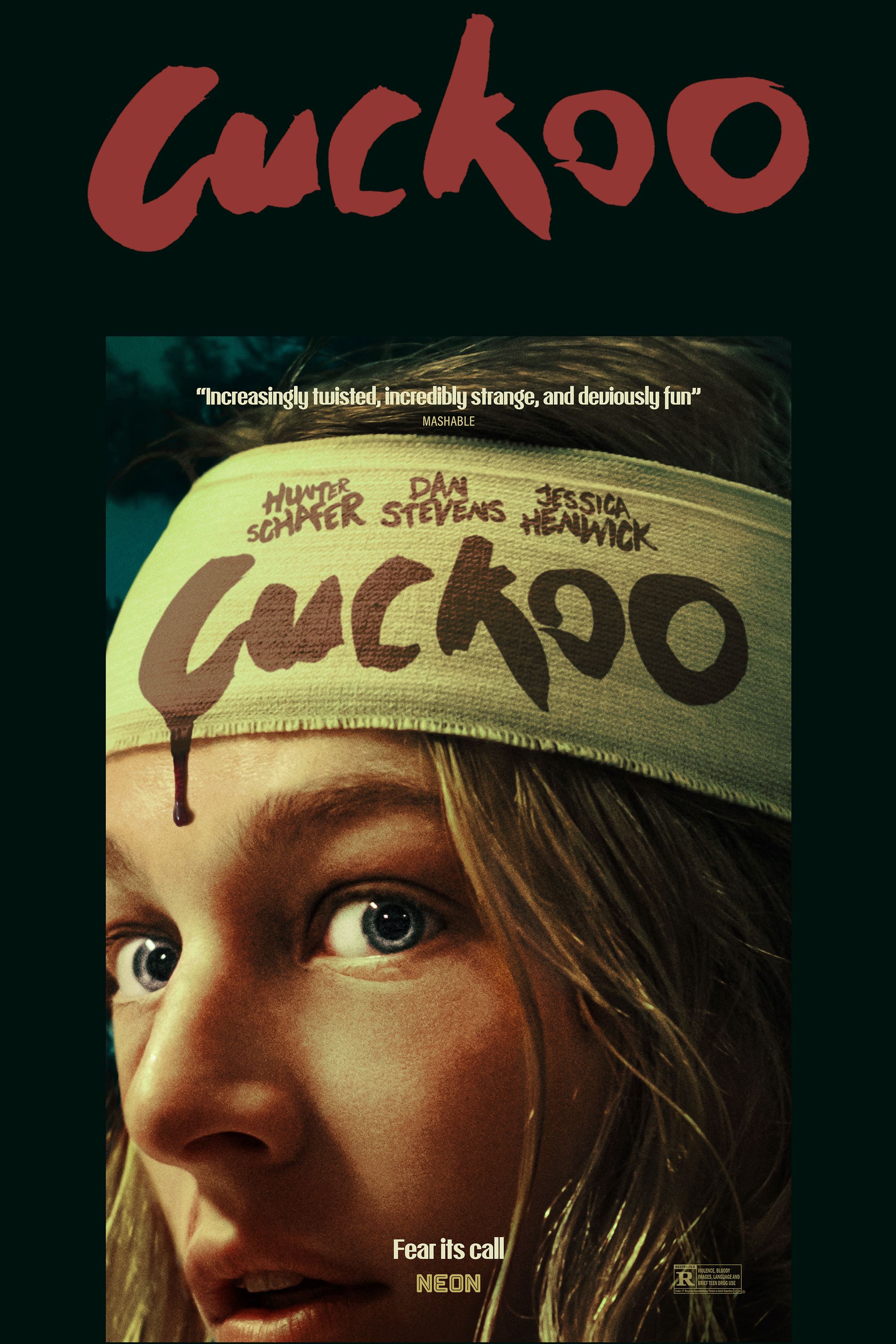
Cuckoo (2024)
On a trip to the German Alps with her father and stepmother, Gretchen (Hunter Schafer from HBO’s “Euphoria”) discovers that the resort town where they’re staying hides sinister secrets, as she’s plagued by strange noises and frightening visions of a woman pursuing her. Soon, Gretchen finds herself pulled into a conspiracy involving bizarre experiments by the resort’s owner that echo back generations.
-
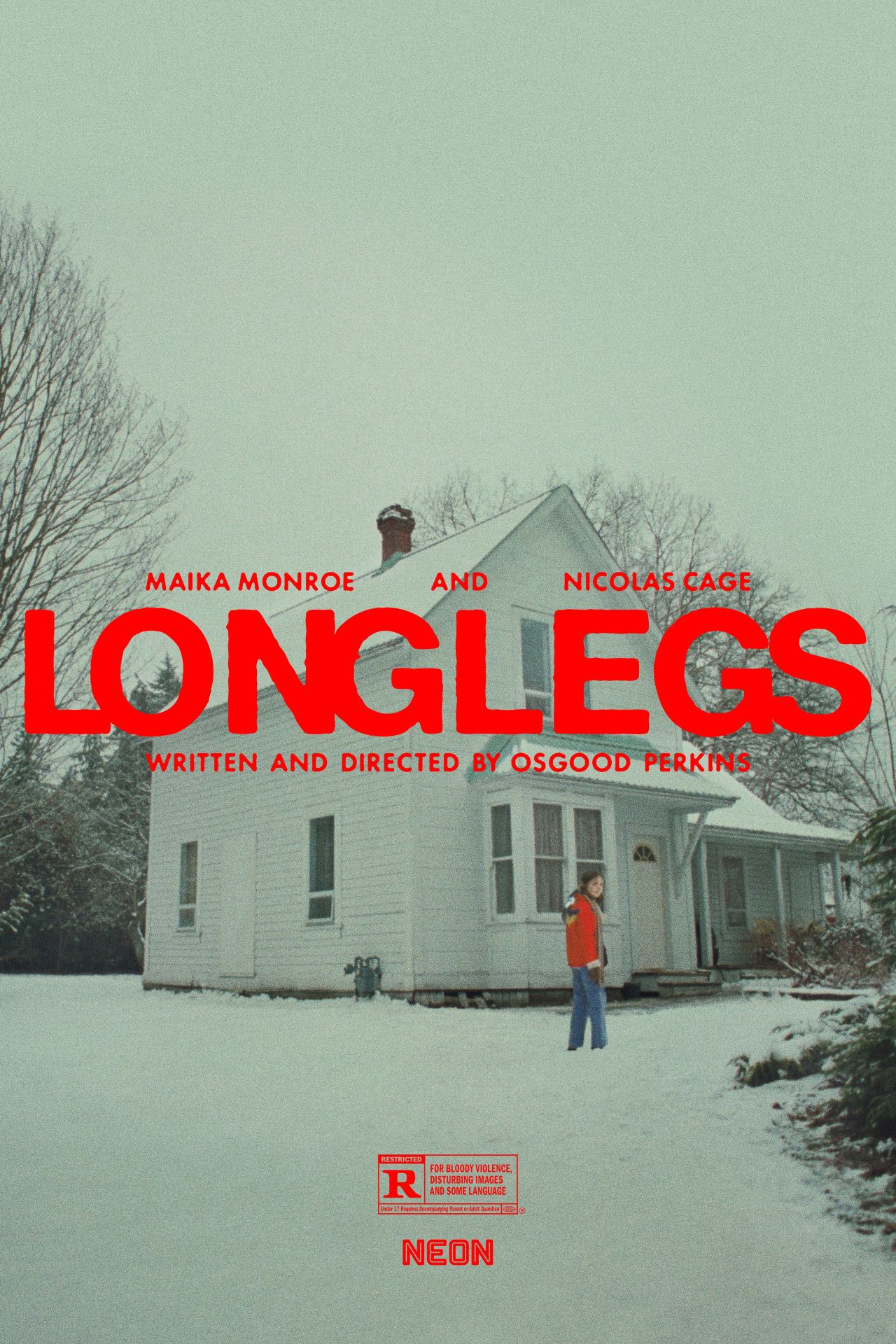
Longlegs
Longlegs is a horror thriller film by writer-director Osgood Perkins. When FBI agent Lee Harker is assigned to a serial killer cold case, their investigation leads them down a rabbit hole riddled with disturbing discoveries and the occult at the center of it all. When the trail of evidence reveals a personal connection, it becomes a race against time to prevent another murder.
-
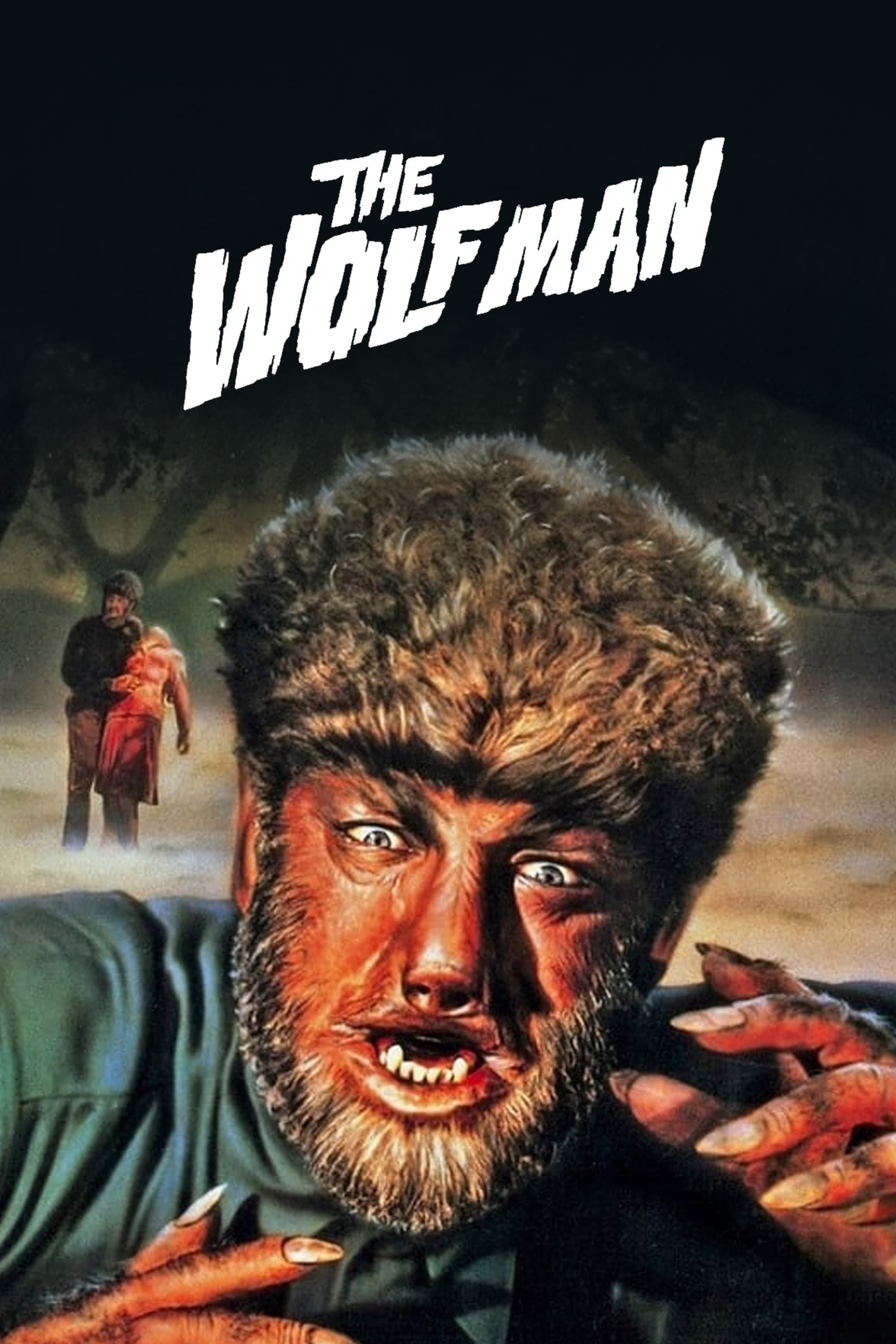
Wolf Man (2025)
Wolfman is a reboot of the classic Universal Monsters movie The Wolfman. Christopher Abbott stars in the lead role and is helmed by The Invisible Man director Leigh Whannell. The film follows the same premise as the original and the 2010 reboot, focusing on a man who becomes a werewolf after falling victim to an ancient curse.

